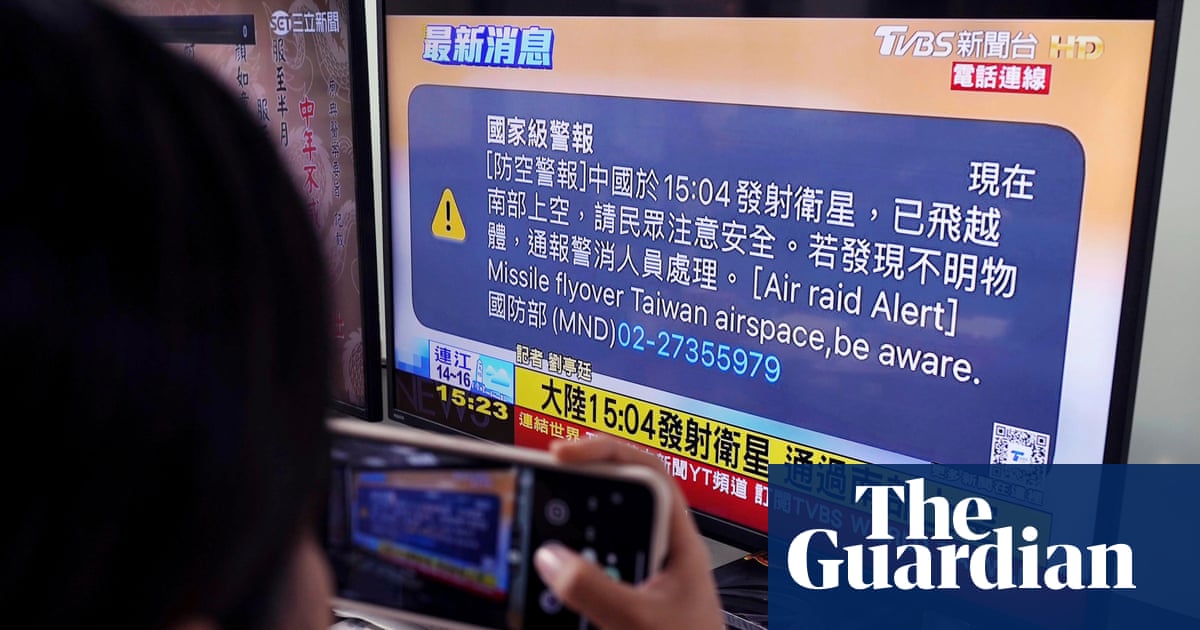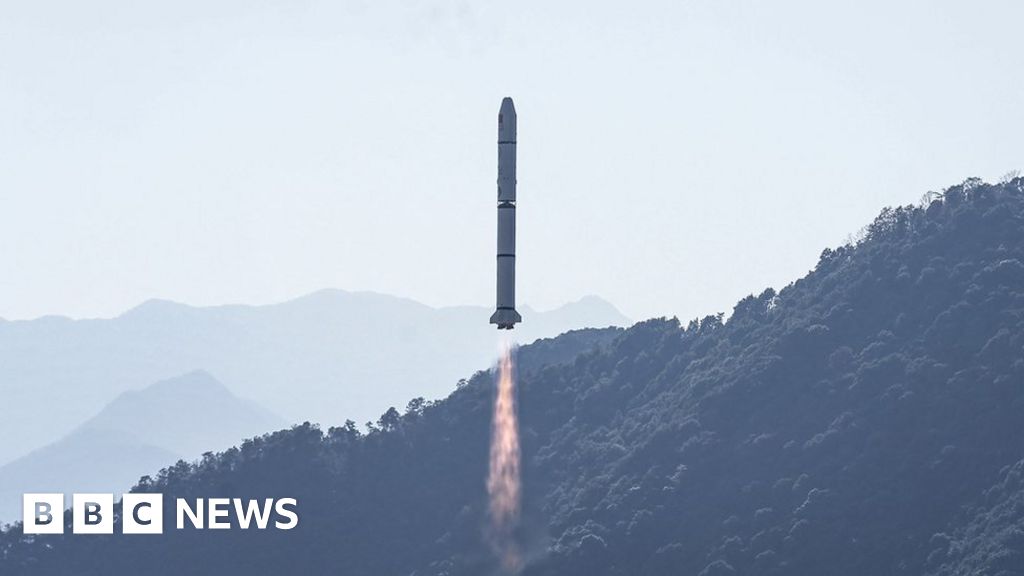A China satellite launch made a nationwide emergency alert in Taiwan just days before the presidential election, causing confusion among the Taiwanese population. The incident happened as the English translation of the emergency message incorrectly referred to the satellite as a missile, leading to anxiety in the already tense political atmosphere.

Also Read: Peregrine 1: Vulcan Rocket Launched the First US Moon Lander in Decades
The bilingual air raid alert, broadcasted over loudspeakers and sent to every mobile phone in Taiwan, warned of a missile flyover Taiwan airspace, creating immediate panic.
The alert stated that China had launched a satellite at 3:04 pm local time, flying over the southern part of Taiwan. However, a mistranslation in the English portion of the message erroneously translated satellite to missile.
Chinese media reported the successful launch of a scientific satellite named the Einstein Probe from the Xichang launch center in Sichuan province.
The trajectories showed that the satellite had flown southeast of Taiwan’s southernmost point at a high altitude.
Chinese authorities had not given prior notice of the satellite launch, concerns about transparency between the two sides.
The incident occurred against the backdrop of Taiwan’s upcoming presidential election, a target of Beijing’s strategies.
China considers Taiwan a part of its territory and has used military intimidation, cognitive warfare, and economic coercion to influence election outcomes.
In recent years, there has been an escalation in military aggression, including missiles fired over Taiwan during live-fire exercises.
Also Read: China Reveals Fujian the Next-Gen Aircraft Carrier
Taiwan’s defense ministry clarified that it was, indeed, a satellite launch and not a missile. The ministry issued an apology, attributing the confusion to an oversight in the English language used in the alert.
Taiwan’s Foreign Minister, Joseph Wu, categorized the satellite launch over Taiwanese airspace as a grey zone activity.
This term is often used to describe provocative actions that fall short of direct military engagement but to unsettle.
Wu addressed that such activities, including military flights and the presence of Chinese weather balloons, as a threat of war.
Opposition parties in Taiwan accused the government and defense ministry of fearmongering, questioning the need for an emergency alert during a satellite launch.
Ling Tao, a legislator from the opposition Kuomintang party, pointed out that previous satellite launches and even missile launches during military drills did not trigger similar alerts.
The incident also made public bemusement, with social media polls showing that many misread the message, believing it mentioned Vietnam due to a similarity.
Also Read: SpaceX’s Starlink Launches Cell Phone Service Satellites
China’s Einstein Probe, launched during this incident, is a scientific satellite developed in collaboration with the European Space Agency, the Chinese Academy of Sciences, and the Max Planck Institute for Extraterrestrial Physics.
The satellite’s mission focuses on observing mysterious transient phenomena in the universe, to unveil lesser known aspects of cosmic events through the analysis of X-ray signals from gravitational wave sources.
The incident led to an unusual Twitter activity, with multiple created accounts expressing skepticism and labeling the situation as a false alarm.
Foreign Minister Joseph Wu reiterated the context of China’s tactics, addressing that the satellite launch, military flights, and other activities were part of an intimidation.
He urged the Taiwanese people to remain clear eyed by these threats. The use of grey zone tactics shows China’s approach of exerting pressure without crossing military thresholds.
As Taiwan prepares for the presidential election, Beijing’s interference is evident through military posturing but also through economic coercion.
The election front runner, Lai Ching-te, accused Beijing of employing all means to influence the vote, including economic pressures.
The tensions between China and Taiwan are rooted in the historical complexities of cross-strait relations. While Beijing asserts its “One China” principle, Taiwan maintains its de facto independence. The upcoming election holds importance for Taiwan and in the Asia-Pacific region.
Also Read: North Korea to Launch 3 More Spy Satellites in 2024





















